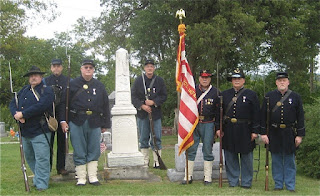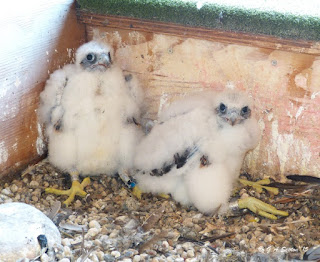Memorial Day is a day of remembrance for those who have died in service for our country. It is celebrated on the last Monday of May. Memorial Day was originally called Decoration Day, and was set for May 30th.
Decoration Day was a day to remember Civil War veterans. On May 30, 1868, it was designated for the purpose of laying flowers or decorating graves of those who died and to arrange services and times of respect for those who had died.
 |
C.K. Pier Badger Camp 1 Milwaukee.
|
For We Energies employee Brian McManus, Memorial Day is a day he remembers Civil War veterans. He is a member of Col. Hans C. Heg Camp # 15 of Sons of Union Veterans of the Civil War, based out of Wind Lake, Wisconsin.
“It’s important to honor our ancestors. It’s a patriotic way to remember,” said McManus.
Sons of Union Veterans of the Civil War is a national organization that preserves the history and legacy of veteran heroes who fought and worked to save the Union in the Civil War. The organization has 29 Departments, and dozens of local Camps around the United States.
McManus says his group restores civil war gravestones, cleans up cemeteries, performs honor guard ceremonies, presents at local schools and marches in parades. He joined the group several years ago as a way to spend time with his father.
“My father belonged to the organization. As a child, my dad spent time with his great-grandfather, a Civil War veteran. It fascinated my dad,” said McManus. That veteran was John McLean, who served in the 17th New York Light Artillery from 1862-1865. McManus is the proud owner of John McLean’s Civil War gauntlets, which were knit for McLean in 1862.
 |
Civil War gauntlets.
|
Recently, the group made headlines defending the care of graves at a cemetery in Muskego. The city was burning tall grass near Civil War gravestones, damaging them in the process. The Commander of Camp # 15 sent a letter to Muskego’s mayor advocating for the final resting place of the soldiers to be treated with respect and honor.
McManus is not the only We Energies employee involved in the Sons of the Union Veterans of the Civil War. Plant operator Patrick Fallon says that the Civil War is important, not only to him, but should be to all Americans as “the outcome of that war confirmed the statement that all men are created equal and ended the scourge of slavery in the nation.” Patrick is the Camp Commander of the C.K. Pier-Badger Camp 1 based out of Milwaukee.
You can see McManus and Fallon participate in a ceremony at Calvary Cemetery, 5503 W. Blue Mound Road, Milwaukee, at 10 a.m. on Memorial Day, May 30.












